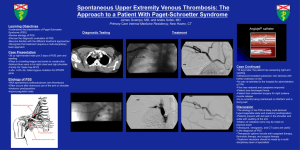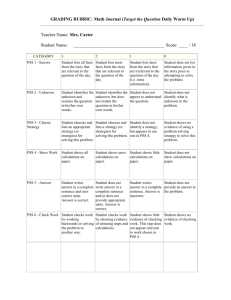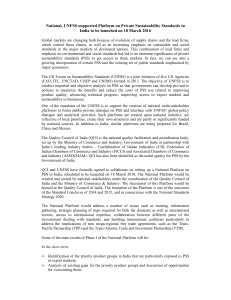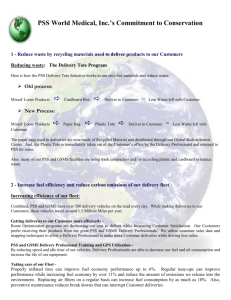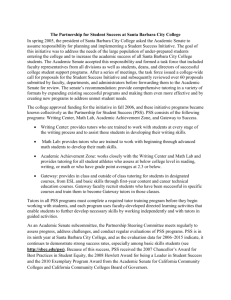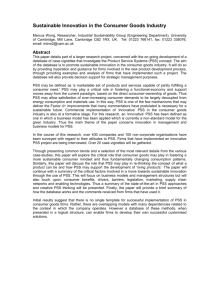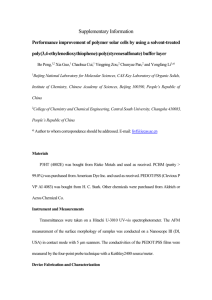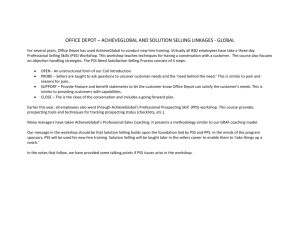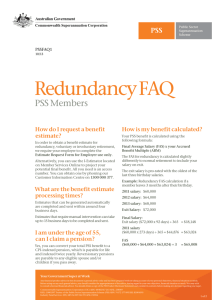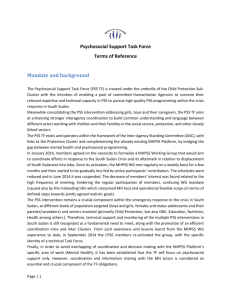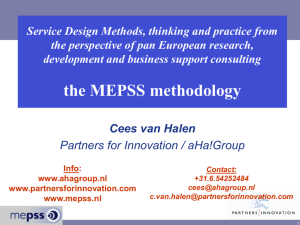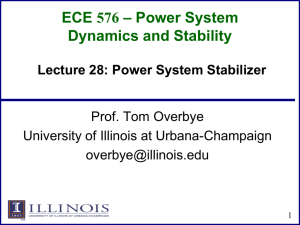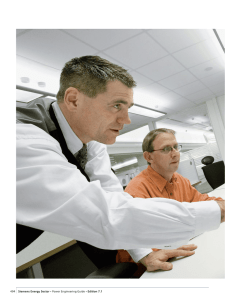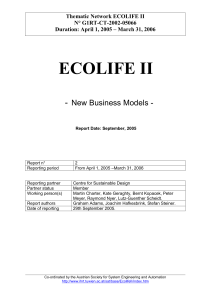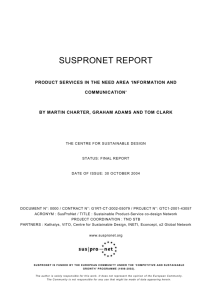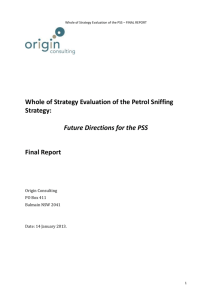Integrating Cloud Technologies, Social Network Analysis
advertisement
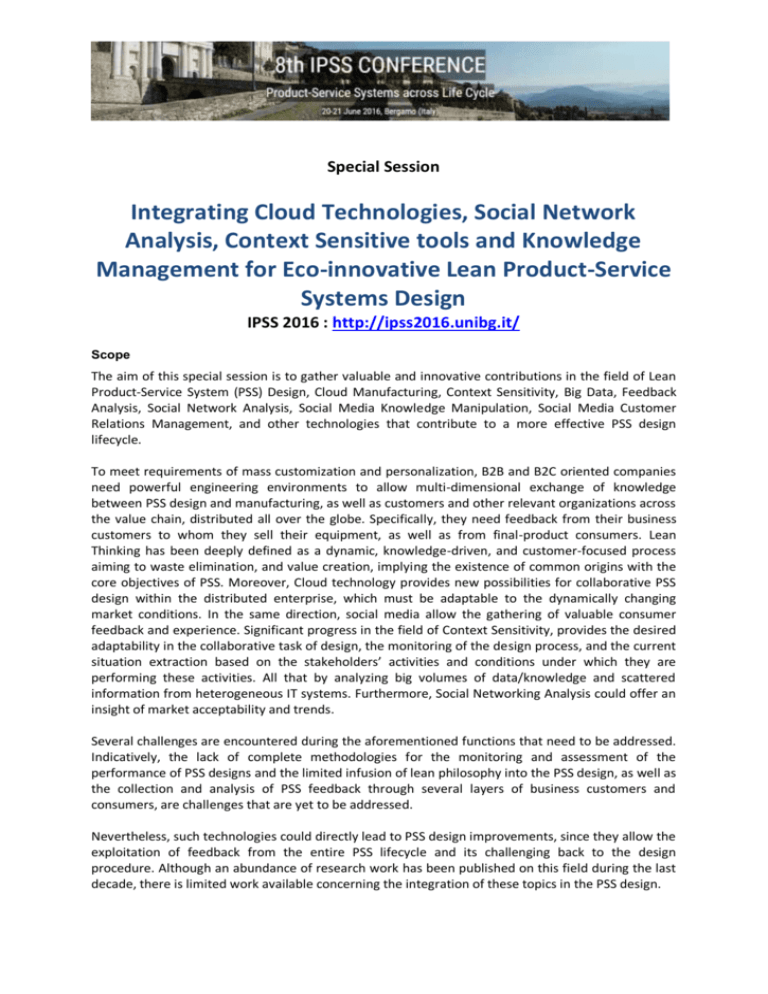
Special Session Integrating Cloud Technologies, Social Network Analysis, Context Sensitive tools and Knowledge Management for Eco-innovative Lean Product-Service Systems Design IPSS 2016 : http://ipss2016.unibg.it/ Scope The aim of this special session is to gather valuable and innovative contributions in the field of Lean Product-Service System (PSS) Design, Cloud Manufacturing, Context Sensitivity, Big Data, Feedback Analysis, Social Network Analysis, Social Media Knowledge Manipulation, Social Media Customer Relations Management, and other technologies that contribute to a more effective PSS design lifecycle. To meet requirements of mass customization and personalization, B2B and B2C oriented companies need powerful engineering environments to allow multi-dimensional exchange of knowledge between PSS design and manufacturing, as well as customers and other relevant organizations across the value chain, distributed all over the globe. Specifically, they need feedback from their business customers to whom they sell their equipment, as well as from final-product consumers. Lean Thinking has been deeply defined as a dynamic, knowledge-driven, and customer-focused process aiming to waste elimination, and value creation, implying the existence of common origins with the core objectives of PSS. Moreover, Cloud technology provides new possibilities for collaborative PSS design within the distributed enterprise, which must be adaptable to the dynamically changing market conditions. In the same direction, social media allow the gathering of valuable consumer feedback and experience. Significant progress in the field of Context Sensitivity, provides the desired adaptability in the collaborative task of design, the monitoring of the design process, and the current situation extraction based on the stakeholders’ activities and conditions under which they are performing these activities. All that by analyzing big volumes of data/knowledge and scattered information from heterogeneous IT systems. Furthermore, Social Networking Analysis could offer an insight of market acceptability and trends. Several challenges are encountered during the aforementioned functions that need to be addressed. Indicatively, the lack of complete methodologies for the monitoring and assessment of the performance of PSS designs and the limited infusion of lean philosophy into the PSS design, as well as the collection and analysis of PSS feedback through several layers of business customers and consumers, are challenges that are yet to be addressed. Nevertheless, such technologies could directly lead to PSS design improvements, since they allow the exploitation of feedback from the entire PSS lifecycle and its challenging back to the design procedure. Although an abundance of research work has been published on this field during the last decade, there is limited work available concerning the integration of these topics in the PSS design. Session Organizers Dimitris Mourtzis Ana Rita Campos, Rui Neves Silva Dragan Stokic, Ana Teresa Correia Lab. For Manufacturing Systems & automation (LMS) UNINOVA ATB This special session receives the support of ProSEco (Collaborative Environment for Eco-Design of Product Services and Production Processes Integrating Highly Personalised Innovative Functions), a research project funded by the European Union Seventh Framework Programme under grant agreement no 609143 (http://www.proseco-project.eu/), and Diversity (Cloud Manufacturing and Social Software Based Context Sensitive Product-Service Engineering Environment for Globally Distributed Enterprise), a research project funded by the European Union H2020 program under grant agreement no 636692 (https://www.diversity-project.eu/) Topics/ Keywords PSS Design PSS Evaluation Lean PSS Design Cloud Computing/Manufacturing for PSS design Social Networking Analysis & Social Media Generated Knowledge Manipulation Context Sensitivity in Manufacturing, PSS design and Product Extension Services Key Performance Indicators Modelling And Monitoring Submission procedure Acceptance of papers is based on review of the full manuscript (up to 6 pages). Instruction for authors are available on http://ipss2016.unibg.it/ To ensure the correct identification of the manuscript for inclusion into the correct Procedia Special Issue, it is important to select "SI: 8th IPSS 2016" for the "Article Type". When submitting please indicate the name of the special session in the “Comments” section. Please follow the submission procedure on: http://ipss2016.unibg.it/, with copy of your paper sent by email to the chairs of the special session. Dead line for submission of full papers of special sessions: 15th January 2016.
